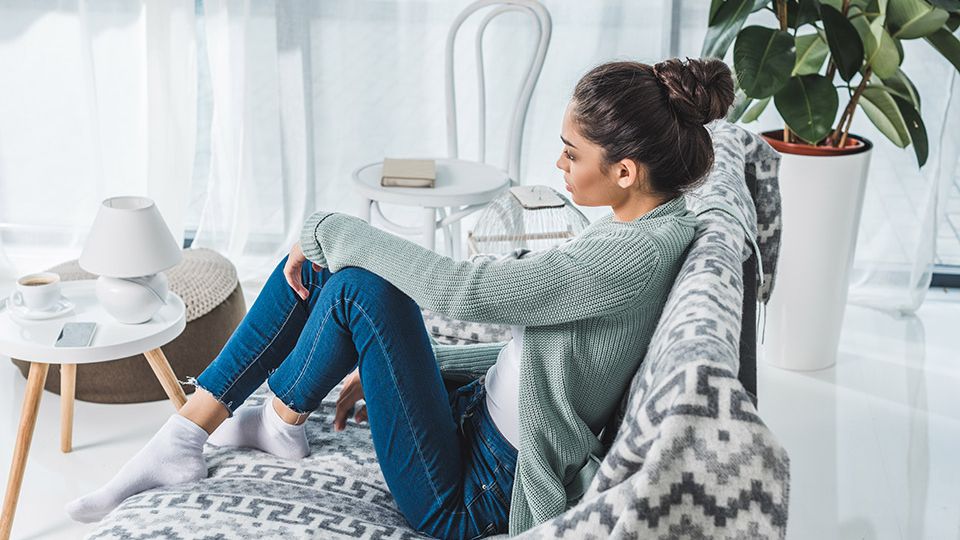
Self-Care During Coronavirus: 9 Tips to Beat Loneliness and Isolation.
With California recently announcing a statewide shelter in place order aimed at preventing the spread of Coronavirus, it looks like many of us are going to be hunkered down at home for the foreseeable future.
While good for public health, this isolation can take a toll on your psyche. Under the best of times, retreating from the world can easily lead to loneliness, anxiety and depression, and physical symptoms related to these mental health challenges.
Add in the additional stresses that millions of us are now dealing with–health concerns, job loss, worrying about bills, keeping kids engaged with e-learning–and the chances of feeling isolated, lonely, and anxious go way up. Fortunately, there are steps you can take during Coronavirus lockdown to:
- Ward off loneliness
- Feel connected with your community and social circles
- De-stress
- Feel less anxious
- Establish good, balanced mental health
Read on to discover these strategies for better self-care during challenging times.
1-Name your emotions
Take a moment to assess how you’re feeling. Do you feel anxious? Depressed? Overwhelmed?
Try naming your emotions and identifying the feeling with an explanation. For example, “I’m anxious in my chest right now because I’m worried about draining my finances.” It sounds simple, but it really can help you calmly assess your emotions and lead to a greater sense of control and balance.
2-Find a routine that works for you
Humans are habitual creatures. Routines are comforting and help us make sense of life’s chaos. If you’re no longer going into the office or attending happy hour like normal, you might feel a little lost or unproductive.
Create a new routine. Set realistic, manageable goals for yourself and follow a ritual that makes sense for you.
- Maintain good sleep hygiene: Wake up and go to bed at the same time every day. Keep your bedroom a quiet, calm space.
- Exercise in any way you can–if possible, get outside and go on a walk with your spouse or your dog.
- Eat a healthy, balanced diet, with set mealtimes and regular snacks.
- Set boundaries between work from home time and personal time.
- Feel free to binge Netflix but be mindful of how many hours you spend in front of the TV.
3-Keep in touch (without touching)
Suddenly being cut off from friends, family, coworkers, and small everyday social interactions can severely impact your mental health during times of crisis. Positive social support improves our resilience for coping with stress, even when practiced at a distance.
Catch up with your next door neighbors over the garden fence (keeping a distance of at least 6 feet) or host an event from your balcony.
4-Use tech tools
Use FaceTime or Skype for video calling. These are not only great tools for remote working and communicating with friends and family, they are also a fantastic way to keep small children occupied on a call with grandparents while you take care of household chores or catch up on work. Businesses are even using video tools to host virtual happy hours.
Email, text messages, and messaging apps (WhatsApp, Slack, etc.) can also help you feel like part of the group again.
- Start group messages for family where you regularly check in and share updates
- Swap photos of your creative indoor activities with friends
- Create a thread with your coworkers where you share your best moments from the day, favorite work from home tips, and maybe even photos of your fluffy coworkers (your pets!)

5-Be “social”… but not too social
Sites like Twitter and Facebook can be a breeding ground for gossip and misinformation about Coronavirus, so exercise caution. Instead of endlessly scrolling through posts containing conflicting information, use social media to join support groups for those in similar situations to yourself, such as those homeschooling their kids or supporting elderly relatives.
6-Enjoy quality time with housemates
If you’re in Coronavirus lockdown with family members or roommates, check in with the people you are living with. This is a great opportunity to work on your existing relationships and spend quality time together, from playing with your kids in the garden or enjoying family activities like baking and painting. Coming together in these moments is a great way to collectively fight anxiety and depression.
7-Enjoy quality time with yourself
Looking after yourself well, and learning how and when to soothe yourself when lockdown or social distancing get tough, will be essential to getting through the coming weeks and months. Here are just a few ideas.
- Treat yourself to a DIY massage, manicure, or pedicure.
- Take a hot bath.
- Curl up with a good book.
- Write in a journal.
- Try a fitness or yoga routine from YouTube.
- Do guided meditation.
- Doodle or enjoy a coloring book.
8-Know yourself
Some people can be more prone to feelings of anxiety, depression, or loneliness during social distancing and lockdown, such as people with a history of these challenges, elderly people who live alone, single parents with young children, and those who recently lost jobs (and the social and financial support that those jobs provided).
If you’ve experienced anxiety or depression in the past or you feel that you’re more prone to isolation and loneliness right now, make self-care a special priority and be aware that you may need to reach out to a professional for extra help.
9-Focus on balance
Self-care is more important than ever during these tough times. By creating balance in your mind, body, and spirit, you can find the calm that leads to clarity, ward off anxiety and depression, and gain the strength to make decisions that best support you and your family.
If you need help creating balance in your life right now, please schedule a virtual appointment with me. I specialize in assisting teens and adults with depression, anxiety disorders, parenting challenges, and more.













